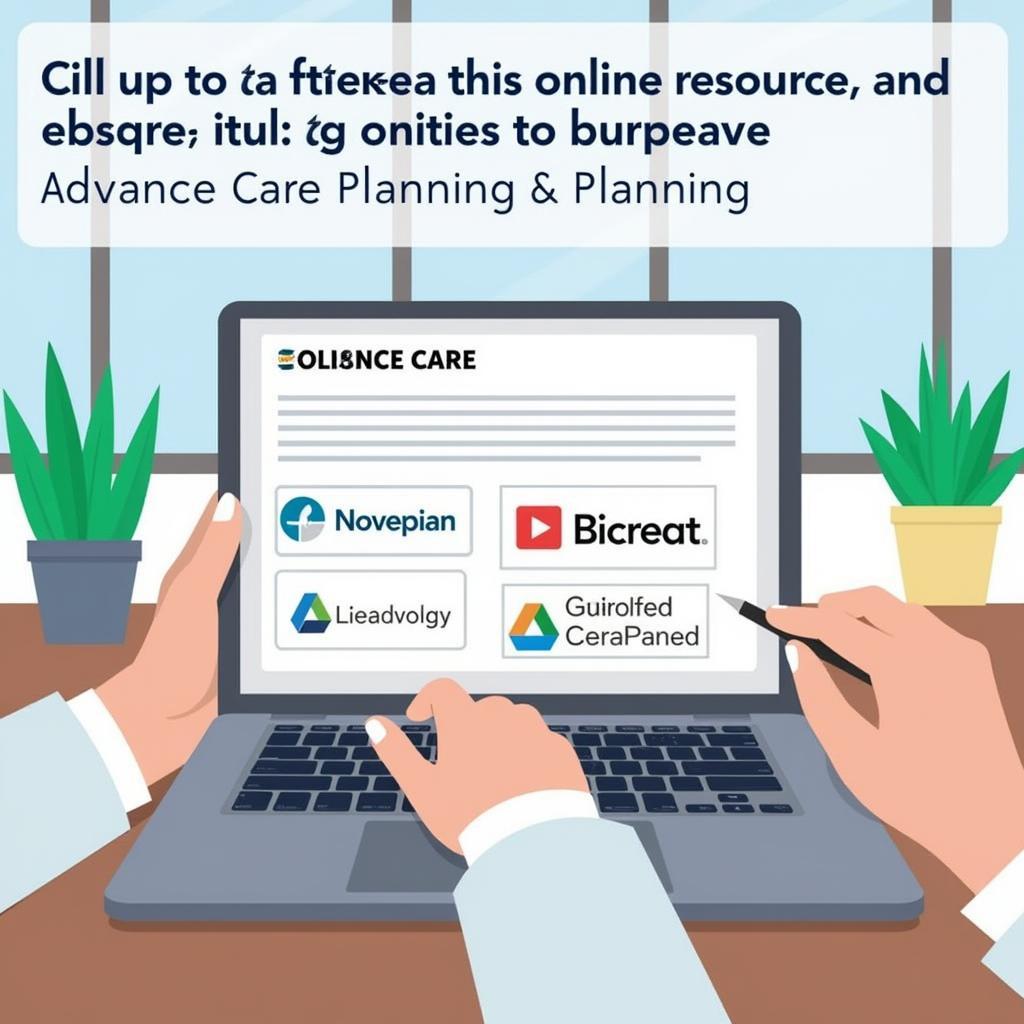Advance care planning tools are essential for ensuring your wishes are respected regarding future medical care. Designing comprehensive and effective documentation is key to this process, allowing you to communicate your preferences clearly and confidently. This article will delve into the crucial aspects of creating such documents, exploring various tools and strategies to help you navigate this important process.
Understanding Advance Care Planning
Advance care planning involves making decisions about the type of medical care you would want to receive if you were unable to speak for yourself. It’s a proactive step that empowers you to maintain control over your healthcare, even in unforeseen circumstances. This process usually involves completing specific documents and discussing your wishes with loved ones and healthcare providers.
Key Components of Advance Care Planning
- Advance Directive: This legal document outlines your healthcare preferences, including decisions about life-sustaining treatment.
- Durable Power of Attorney for Healthcare: This designates a trusted individual to make medical decisions on your behalf if you become incapacitated.
- Living Will: This document specifies your wishes regarding medical treatments, particularly in end-of-life situations.
- Values History: This document provides context to your medical decisions by outlining your personal values, beliefs, and priorities.
Designing Effective Advance Care Planning Documentation
Creating clear and concise advance care planning documentation is crucial for ensuring your wishes are understood and respected. This requires careful consideration of your values, preferences, and potential future scenarios.
Tips for Effective Documentation
- Be Specific: Avoid vague language and clearly outline your preferences for different medical situations.
- Discuss with Loved Ones: Sharing your wishes with family and friends ensures everyone is on the same page and minimizes potential conflicts later.
- Review and Update Regularly: Your healthcare preferences may change over time, so it’s important to review and update your documents periodically.
- Seek Legal Advice: Consulting with an attorney can help you ensure your documents are legally sound and comply with state regulations.
 Discussing Advance Care Planning with Family
Discussing Advance Care Planning with Family
Choosing the Right Advance Care Planning Tools
Numerous tools and resources are available to assist you in creating your advance care planning documents. These resources range from online templates to personalized guidance from healthcare professionals.
Examples of Advance Care Planning Tools
- Online Advance Directive Templates: Several websites offer free or low-cost templates for creating advance directives.
- Advance Care Planning Workbooks: These workbooks provide guided prompts and questions to help you articulate your preferences.
- Conversations with Healthcare Professionals: Discussing your wishes with a doctor or nurse can provide valuable insights and clarification.
How can I find the right tools for me?
Finding the right tools depends on your individual needs and preferences. Some people may prefer the convenience of online templates, while others may value personalized guidance from a healthcare professional. Consider factors such as your comfort level with technology, the complexity of your medical history, and your desire for professional support when making your decision.
“Advance care planning is not just about end-of-life care; it’s about ensuring your voice is heard throughout your healthcare journey,” says Dr. Emily Carter, a palliative care specialist at the University of Chicago Medical Center. “These tools empower individuals to make informed decisions and maintain control over their medical care, regardless of their circumstances.”
 Accessing Online Advance Care Planning Resources
Accessing Online Advance Care Planning Resources
Conclusion
Advance care planning tools are invaluable resources for designing effective documentation that reflects your healthcare wishes. By carefully considering your values, exploring available resources, and engaging in open communication, you can ensure your preferences are respected and your voice is heard in all healthcare decisions. Start planning today to secure peace of mind for yourself and your loved ones.
FAQ
- What is the difference between a living will and an advance directive?
- Who should I appoint as my durable power of attorney for healthcare?
- How often should I review and update my advance care planning documents?
- Are online advance directive templates legally valid?
- Where can I find additional resources on advance care planning?
- How can I discuss advance care planning with my family?
- What if my wishes change over time?
Need Help?
For further assistance with car diagnostics or any automotive-related inquiries, feel free to reach out to us. Contact us via WhatsApp: +1(641)206-8880, Email: [email protected] or visit our office at 910 Cedar Lane, Chicago, IL 60605, USA. We have a 24/7 customer support team available to assist you. We also have articles on our website regarding car diagnostic tools and troubleshooting common car problems.

Leave a Reply